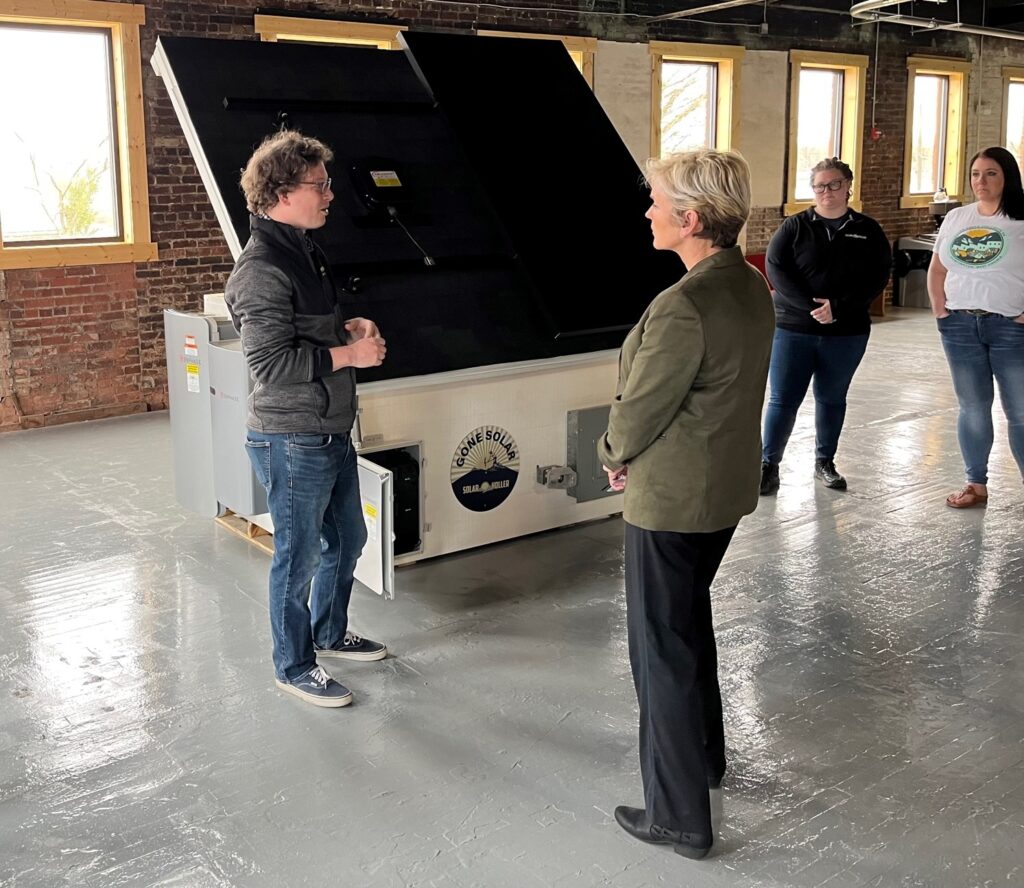West Virginia is among the states receiving funds from the U.S. Department of Energy to create a regional hydrogen hub.
President Joe Biden is set to announce the Appalachian Regional Clean Hydrogen Hub later Friday. The hub, also called ARCH2, will include Ohio and Pennsylvania.
The region will be eligible for as much as $925 million of the $7 billion in total going to seven regional hubs across the country.
The White House projects 18,000 construction jobs and 3,000 permanent jobs resulting from the investment in the Appalachian hub.
Other hubs will be established in the mid-Atlantic, California, the Gulf Coast, the Upper Midwest, the Great Lakes and the Pacific Northwest.
The Appalachian hub will lean on the region’s abundant supply of natural gas to make hydrogen. Of the other hubs, only the Gulf Coast will also use natural gas, called blue hydrogen.
Most of the others will use renewable energy, including wind, solar and hydro, known as green hydrogen.
The Great Lakes hub will use nuclear power, known as pink hydrogen.
Appalachia’s hub will store the carbon dioxide generated from the production process.
The seven hubs are expected to generate three million metric tons of hydrogen annually, which will be used to decarbonize industrial sectors that produce 30 percent of U.S. carbon emissions.
The initiative is projected to cut 25 million metric tons of CO2 each year, part of the Biden administration’s larger goal of cutting emissions to meet the targets of the Paris Agreement.
“With this historic investment,” said Energy Secretary Jennifer Granholm in a statement, “the Biden-Harris administration is laying the foundation for a new, American-led industry that will propel the global clean energy transition while creating high quality jobs and delivering healthier communities in every pocket of the nation.”
U.S. Sen. Shelley Moore Capito noted that funding for the hydrogen hubs came from the Infrastructure Investment and Jobs Act of 2021. Capito participated in the negotiation of that legislation and was key to its Senate passage.
“I consistently supported efforts to help make this project a reality,” she said in a statement. “I’m thrilled for the ARCH2 Team, and am so proud West Virginia will continue its tradition as an innovative, energy-producing state through a regional hydrogen hub.”




















